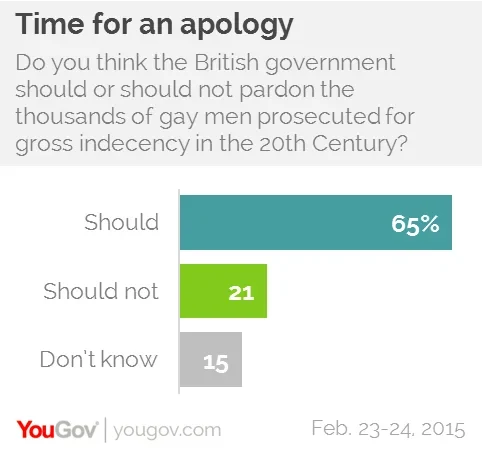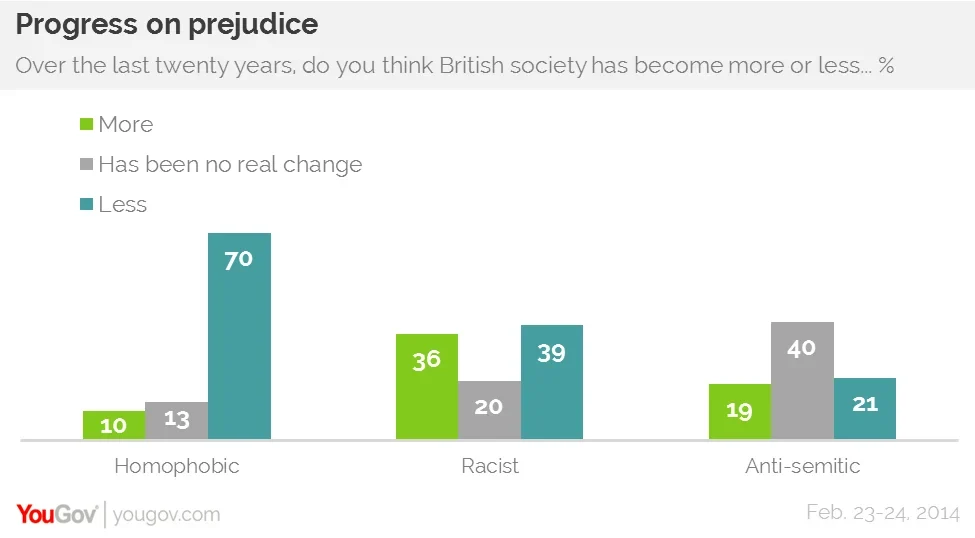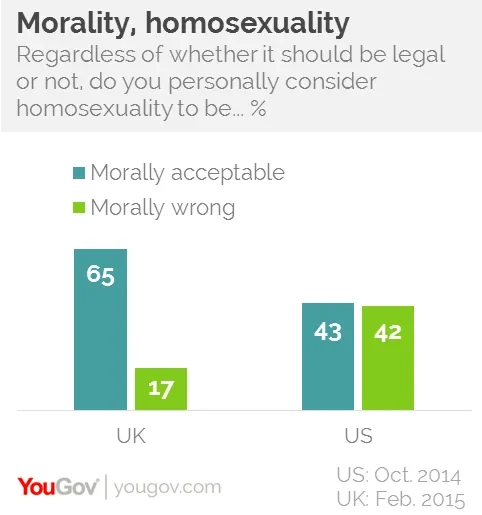Two in three voters say the British government should pardon the thousands of gay men that were convicted of gross indecency – and Britain is seen as having come a long way from its homophobic past
The family of WWII code breaker Alan Turing visited No 10 Downing Street on Monday, demanding pardons for the 49,000 men prosecuted for homosexuality by the British government during the 20th Century. Turing himself was pardoned in 2009, after being convicted of gross indecency and being chemically castrated in the 1950s, later dying from cyanide poisoning in a supposed suicide. Now a petition calling for the pardoning of the thousands of other persecuted men has reached over half a million signatures.

New YouGov research finds that support for wiping the criminal records of these men clean is highly popular amongst the nation as a whole.
Two thirds of British people (65%) say the government should pardon the men it prosecuted for gross indecency, while 21% say it should not. A quarter (25%) of Conservatives and over a third (37%) of UKIP voters oppose issuing pardons, compared to 14% of Labour voters.
The offence of gross indecency was only removed from the statute book in 2003, although consensual homosexual behaviour had been decriminalised to some extent by 1967. Sex between more than two men was a criminal offence until 2000, and homosexuals were also barred from joining the army until that year.
In British law equality of sexual orientation has in some respects lagged behind equality of race, but people are far more likely to say that society has become less homophobic in the past 20 years (70%) than they are to say it has become less racist (39%). On anti-semitism, people are more likely to say there has been no change than either a change for better or worse.

But it could just be that people see gay rights as having had further to come: equal proportions of people now say they often encounter homophobic behaviour (28%) as say they often encounter racist behaviour (27%).

In America, anti-sodomy laws were ruled as unconstitutional in 2003, but even now there are 12, mainly southern states with them on their statute books. One state, Louisiana, has been accused by gay rights groups of using the powers to target gay men, but lawmakers there refused to repeal the law last year.
Research by YouGov in America has found the nation divided over the morality of homosexuality, with 43% saying it is morally acceptable and 42% saying it is not. In the South, people tend to say it is morally unacceptable by 44-39%. In Britain, by contrast, 65% say homosexuality is morally acceptable and only 17% say it is not.










